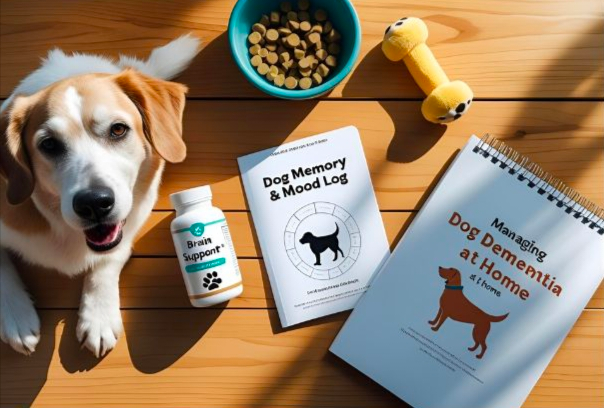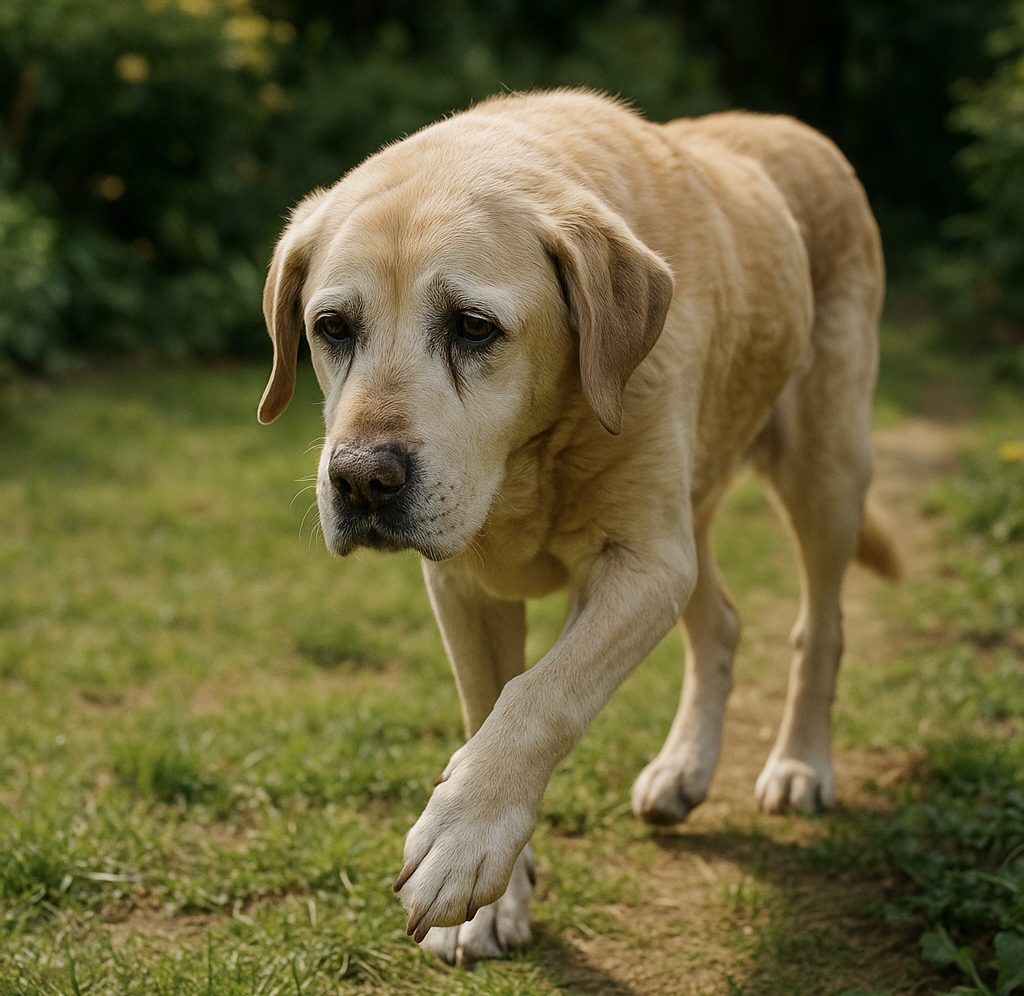As our beloved dogs grow older, their health needs change dramatically. Just like humans, senior dogs are more prone to certain medical conditions that can affect their comfort, mobility, and quality of life.
Understanding the most common senior dog health issues, the early warning signs, and preventive care strategies can help you extend your dog’s healthy years and keep their golden years truly golden.
Table of Contents
🐶 When Is a Dog Considered Senior?
Dogs age differently depending on their breed and size. Generally:
- Small breeds (under 20 lbs): Senior at 10–12 years
- Medium breeds (20–50 lbs): Senior at 8–10 years
- Large and giant breeds (50+ lbs): Senior as early as 6–7 years
👉 Tip: Even if your dog doesn’t “look old,” regular vet visits become more important once they reach this age bracket. Early detection is the key to managing age-related health problems.
Let’s dive into the most frequent problems older dogs face and what you can do to help.
⚠️ Common Senior Dog Health Issues

1. Arthritis and Joint Problems
- What it is: Inflammation of the joints, leading to stiffness and pain
- Symptoms:
- Limping or stiffness after rest
- Reluctance to climb stairs, jump, or run
- Swollen or sensitive joints
- How to help:
- Keep your dog at a healthy weight
- Provide joint supplements (glucosamine, chondroitin, omega-3s)
- Use orthopedic dog beds and ramps
- Ask your vet about pain management options
2. Dental Disease
- Why it matters: Up to 80% of senior dogs develop gum disease, which can lead to tooth loss and even affect organs like the heart and kidneys.
- Symptoms:
- Bad breath
- Red or bleeding gums
- Loose or missing teeth
- Drooling or difficulty chewing
- Prevention & care:
- Daily tooth brushing (with dog-safe toothpaste)
- Dental chews and water additives
- Professional cleanings at your vet
3. Vision and Hearing Loss
- Causes: Cataracts, retinal degeneration, or age-related hearing decline
- Symptoms:
- Cloudy or bluish eyes
- Bumping into furniture or walls
- Startling easily or not responding to calls
- Care tips:
- Keep furniture in the same position
- Use hand signals and vibrations to communicate
- Install night lights to help with navigation
4. Kidney Disease
- Why it’s common: Kidneys naturally weaken with age, reducing their ability to filter waste.
- Symptoms:
- Increased thirst and urination
- Weight loss
- Vomiting or poor appetite
- Lethargy
- Prevention & care:
- Regular blood and urine tests
- Special kidney-support diets
- Ensure access to clean, fresh water at all times
5. Heart Disease
- Types: Congestive heart failure and valve disorders are most common in older dogs.
- Symptoms:
- Coughing (especially at night)
- Fatigue or fainting after activity
- Difficulty breathing
- Swollen belly (fluid buildup)
- Care:
- Early detection through routine exams
- Medications to improve heart function
- Low-sodium diets
6. Cancer
- Why it matters: Cancer is one of the leading causes of death in older dogs.
- Symptoms:
- Unexplained lumps or bumps
- Sudden weight loss
- Changes in appetite or behavior
- Care:
- Immediate vet evaluation for any new growths
- Options may include surgery, chemotherapy, or palliative care
7. Cognitive Dysfunction (Dog Dementia)

- What it is: Age-related decline in brain function, similar to Alzheimer’s in humans.
- Symptoms:
- Disorientation (getting lost in familiar places)
- Changes in sleep cycles
- Increased anxiety or restlessness
- House-soiling despite being trained
- Management:
- Stick to consistent routines
- Provide puzzle toys and enrichment
- Ask your vet about supplements and medications
🏥 How to Keep Senior Dogs Healthy
Caring for a senior dog requires a proactive approach:
- ✅ Regular veterinary checkups (every 6 months instead of once a year)
- ✅ Senior-specific diets with joint and digestive support
- ✅ Weight control to reduce strain on joints and organs
- ✅ Gentle, consistent exercise (short walks, swimming, light play)
- ✅ Comfort at home (soft beds, ramps, non-slip flooring)
- ✅ Mental stimulation (training refreshers, interactive toys)
❓ FAQs About Senior Dog Health
1. How often should a senior dog see the vet?
At least twice a year, since health conditions progress faster in older pets.
2. Do senior dogs need special food?
Yes, senior dog foods are lower in calories but higher in fiber and nutrients to support joint, kidney, and digestive health.
3. What’s the most common health issue in older dogs?
Arthritis and dental disease are among the top age-related conditions.
4. How can I tell if my senior dog is in pain?
Look for subtle signs: reluctance to move, licking joints, restlessness, or changes in appetite and behavior.
📝 Final Thoughts
Aging is a natural part of life, but with the right care, your senior dog can remain happy, active, and comfortable. By staying alert to the early signs of health problems and working closely with your veterinarian, you can give your dog the best possible quality of life in their golden years.










